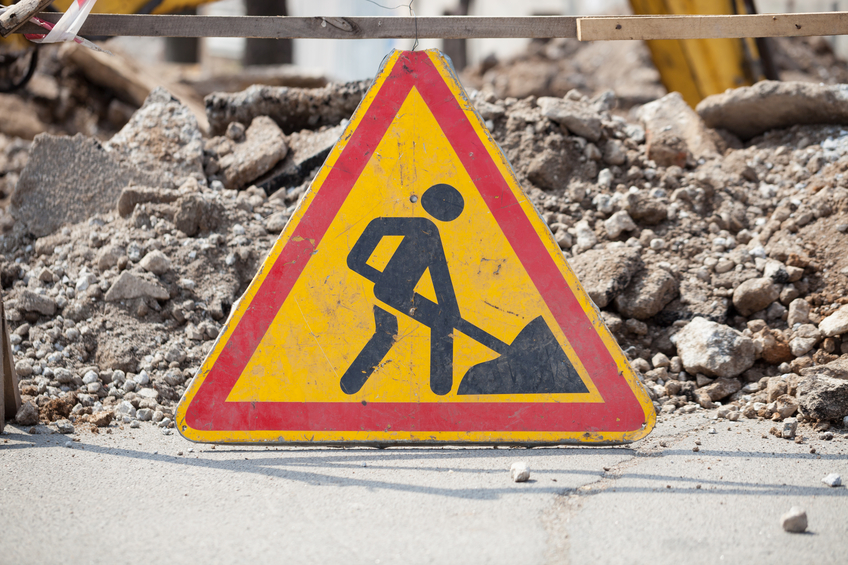Industrial and Floria Laws, Rules & Ethics 18 PDH Discount Package 2
Courses in this Package
Introduction to Radiation (Y03-004)
Nuclear Energy Principles and Reactor Fundamentals (N05-002)
Radiation Detectors for Industrial Facility Systems (D06-001)
Working Safely with Portable Gauges (N02-007)
Engineering Laws, Rules and Ethics for Florida Professional Engineers (FL2-006)

This online engineering PDH course provides an overview of the types of radiation, the health effects due to exposure and the way it is regulated.
Radiation has always been present and is all around us. Life has evolved in a world containing significant levels of ionizing radiation. We are also exposed to man-made radiation from sources such as medical treatments and activities involving radioactive material.
The health effects of radiation are well understood. Since the early 20th century, radiation’s effects have been studied in depth, in both the laboratory and among human populations. Because of the known health risks of radiation, it must be carefully used and strictly controlled. A balance must be struck between radiation’s societal benefits and the risks that radiation poses to people, health and the environment.
The Canadian Nuclear Safety Commission (CNSC) regulates the use of nuclear energy and materials to protect the health, safety and security of Canadians and the environment; and to implement Canada's international commitments on the peaceful use of nuclear energy. It also sets dose limits to prevent workers and the public from excessive radiation exposure.
This 3 PDH online course is applicable to safety engineers and professionals who are interested in learning more about nuclear safety.
This PE continuing education course is intended to provide you with the following specific knowledge and skills:
- Understanding the definitions of atoms, isotopes and radioisotopes
- Familiarizing with the types of radiation: non-ionizing and ionizing radiation
- Knowing the natural and man-made sources of ionizing radiation
- Understanding the health effects of radiation exposure and how it causes cancer
- Familiarizing with the epidemiological evidence of the effect of the radiation exposure
- Identifying the radiation dose limits and the typical radiation doses produced by natural and man-made sources
- Learning the types of radiation doses: absorbed, equivalent and effective dose
- Familiarizing with the rules regulating radiation
Upon successful completion of the quiz, print your Certificate of Completion instantly. (Note: if you are paying by check or money order, you will be able to print it after we receive your payment.) For your convenience, we will also email it to you. Please note that you can log in to your account at any time to access and print your Certificate of Completion.

This online engineering PDH course is a graded summary of important aspects of the Light Water Reactor (LWR) core and plant systems.
There are two types of LWR technologies, Pressurized Water Reactor (PWR) and Boiling Water Reactors (BWR). This course discusses fundamental design traits of each providing contrasts between performance and safety features. Its intent is to provide a clear understanding of nuclear terminology associated with LWR technology, including fundamentals, systems, safety, and regulations.
This 5 PDH online course is applicable to industrial and nuclear engineers as well as other technical professionals who are interested in learning more about Light Water Reactor systems.
This PE continuing education course is intended to provide you with the following specific knowledge and skills:
- Familiarizing with the basic concepts of radioactive materials and radioactivity
- Identifying the potential effect of various types of radioactive particles and waves on the human body
- Learning about the reactions in fissile material and the resulting decay products as the various forms of radioactivity
- Understanding the basic core physics principles core physics, reactor control and heat transfer
- Learning about the Pressurized Water Reactors (PWR) and the Boiling Water Reactors (BWR)
- Knowing the material degradation issues such as water chemistry issues and fuel and structural material issues
- Identifying safety issues such as initiating events, anticipated frequency of occurrence and barriers of defense
- Knowing the reactor instrumentation and control: reactor data acquisition system and the reactor protection and engineered safety feature actuation system
In this professional engineering CEU course, you need to review the course document titled, “Nuclear Energy Principles and Reactor Fundamentals”, which is based on U.S. Department of Energy National Laboratory operated by Battelle Energy Alliance “Reactor Fundamentals
Handbook”, publication INL/EXT-19-53301 Revision 0, dated April 2019.Upon successful completion of the quiz, print your Certificate of Completion instantly. (Note: if you are paying by check or money order, you will be able to print it after we receive your payment.) For your convenience, we will also email it to you. Please note that you can log in to your account at any time to access and print your Certificate of Completion.

This online engineering PDH course provides a basic understanding of instrumentation and control necessary for safe operation and maintenance of energy facilities and their support systems. In particular, this course describes the principles of radiation detection, detector operation, circuit operation, and specific radiation detector applications.
This 6 PDH online course is applicable to industrial and nuclear engineers, construction and design personnel, technical staff and facility operators who are interested in gaining a better understanding of radiation detectors.
This PE continuing education course is intended to provide you with the following specific knowledge and skills:
- Radiation detection terminology
- Radiation types
- Circuitry and circuit elements
- Types of detectors
- Types of counters
- Types of ionization chambers
- Types of nuclear instrumentation
In this professional engineering CEU course, you need to review Module 6, "Radiation Detectors" of the Department of Energy Publication DOE-HDBK-1013/2-92, "Instrumentation and Control".
Upon successful completion of the quiz, print your Certificate of Completion instantly. (Note: if you are paying by check or money order, you will be able to print it after we receive your payment.) For your convenience, we will also email it to you. Please note that you can log in to your account at any time to access and print your Certificate of Completion.

This online engineering PDH course provides guidelines on the safe handling and use of portable nuclear gauges.
Gauges are used in industries such as agriculture, construction and civil engineering to measure moisture and compaction levels in soil and asphalt density in paving mixes.
Two types of radiation are used in gauges: gamma and neutron.
Working with portable gauges presents no major health dangers or significant risks if basic safety precautions are taken and common sense is used. By following proper safety procedures, using effective radiation protection principles, and helping others to do likewise, the workplace will remain safe at all times.
This 2 PDH online course is applicable to industrial engineers and professionals who are interested in learning about portable gauges and the safety measures to operate them.
This PE continuing education course is intended to provide you with the following specific knowledge and skills:
- Familiarizing with the CNSC’s role and the role of portable gauges
- Understanding the definition of radiation and the methods of protection
- Recognizing the methods to keep track of radiation doses: personal dosimeters or counting shots
- Identifying the responsibilities of portable gauge users
- Knowing the training requirements for portable gauge users
- Learning about the emergency procedures and the measures to be taken if the device is lost or stolen
- Knowing the steps to take before you start, during the operations and at the end of the job
Upon successful completion of the quiz, print your Certificate of Completion instantly. (Note: if you are paying by check or money order, you will be able to print it after we receive your payment.) For your convenience, we will also email it to you. Please note that you can log in to your account at any time to access and print your Certificate of Completion.

Upon successful completion of the “Engineering Laws, Rules and Ethics for Florida Professional Engineers” course, we will report your PDH credits for this course to the FBPE within 2 business days. Therefore, it is imperative that you indicate your Florida PE license number in your CED account so that we can successfully do so. Once reported, please allow up to 48 hours for the FBPE to update their database.
This online PDH course is a FL approved Engineering Laws, Rules and Ethics course and is being offered by Continuing Education and Development, Inc, a FL approved Continuing Education Provider (CEP No. 0004183).
The first part of this course begins with an overview of the Laws and Rules governing the practice of engineering in the State of Florida (Chapter 1) including:
- Florida Statutes, Chapter 455, “Department of Business and Professional Regulation”
- Florida Statutes, Chapter 471, “Engineering”
- Florida Administrative Code, 61G15, F.A.C., “Florida Board of Professional Engineers”
Then it continues to address the rules amended, adopted or otherwise repealed from 61G15, F.A.C. (Chapter 2) as well as the changes to Chapters 455, F.S. and 471, F.S. (Chapter 3), within the preceding biennium, as applicable.
The second part of this course presents engineering ethics and the principles of professional responsibility (Chapter 4). It further illustrates the application of Chapters 455 and 471, F.S. to a randomly selected set of ethical and disciplinary cases (Chapter 5).
This 2 PDH online engineering course is applicable to Professional Engineers licensed in the State of Florida and who are required to demonstrate continuing professional competency in the Florida Laws, Rules and Ethics as a condition of license renewal. For each renewal period, every licensee must complete eighteen (18) professional development hours as follows:
- One hour must relate to this chapter and the rules adopted under this chapter;
- One hour must relate to professional ethics;
- Four hours must relate to the licensee’s area of practice; and
- The remaining hours may relate to any topic pertinent to the practice of engineering.
This PE continuing education engineering course is intended to provide you with the following specific knowledge and skills:
- Understanding the different Florida laws and rules regulating the practice of engineering in the State of Florida and their application to Professional Engineers
- Learning the rules adopted, amended or repealed from 61G15 within the preceding biennium
- Learning the changes made to Chapters 455, F.S. and 471, F.S. within the preceding biennium
- Understanding ethical behavior and the principles of professional responsibility in the field of engineering
- Understanding the general application of Chapters 455 and 471, F.S. to various ethical and disciplinary cases of Professional Engineers
Upon successful completion of the quiz, print your Certificate of Completion instantly. (Note: if you are paying by check or money order, you will be able to print it after we receive your payment.) For your convenience, we will also email it to you. Please note that you can log in to your account at any time to access and print your Certificate of Completion.